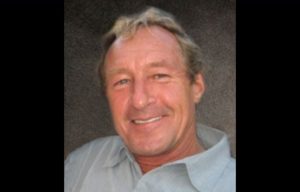Hecker mulls HSS homes
The Hecker Zoning Board of Appeals last week voted 5-2 to recommend approving a special use request by Human Support Services to permit occupancy of four unrelated adults in each of two group homes planned for developmentally disabled persons in the village.
Going against the zoning board recommendation, the Hecker Village Board on Tuesday night voted unanimously to reject the HSS request.
Tuesday’s decision was met with applause from village residents in attendance at Hecker Village Hall.
The Sept. 3 zoning board of appeals meeting lasted more than three hours, and saw citizens and others ask a variety of questions and place on the record a number of concerns. In the end, the zoning board decided the request was otherwise identical to existing allowed use, and would therefore adequately protect public health, safety and welfare, and the physical environment.
Hecker’s ordinances currently permit such a residence for three non-related persons, leading to the special use request.
The zoning board noted that its decision was consistent with the Federal Fair Housing Act, which requires the village to make “reasonable accommodations to rules and policies to afford disabled persons equal opportunity to use a dwelling.”
The overflow attendance of last week’s meeting heard a detailed explanation of many issues, and a variety of concerns raised, both in favor of and against the planned group homes.
One issue to be clarified was a rumor that HSS originally sought to locate these new homes in Valmeyer, but had been turned down by that community.
In fact, HSS Executive Director Robert Cole said HSS had purchased property in Valmeyer to build a residence for eight persons. But in designing the building, including ensuring accommodation for physically disabled access, it was discovered there was a conflict of ownership of a strip of land needed for a construction offset.
HSS was able to get its purchase price returned and began to make other plans. Cole noted that they felt at the time it might be possible to develop group homes for smaller numbers of residents, and they decided to wait to see if funding would allow that, which it has.
Questions of perceived public safety issues — including possible changes to the planned occupancy by four older, developmentally disabled persons — were raised. Others questioned impacts on village services, costs and traffic flows.
Community residents, especially those already living near the planned development in Freedom Village, expressed concerns about possible negative impacts on property values.
It was stated by supporters that the disabled will not be able to move outside the homes without assistance. Their statuses as human beings and rights to decent housing were also expressed by supporters, as well as the fact the development will house only eight such persons in total.
In the end, the zoning board balanced concerns of residents with federal and state laws and goals to reduce institutionalization for developmentally disabled persons while improving their lives by placing them in more residential settings.
HSS already maintains several housing settings for persons with disabilities in Waterloo and Columbia. They have not announced when construction of the homes in Hecker, which would be built on one floor to enhance disabled access, will begin.
(Read next week’s paper for more on this story.)






